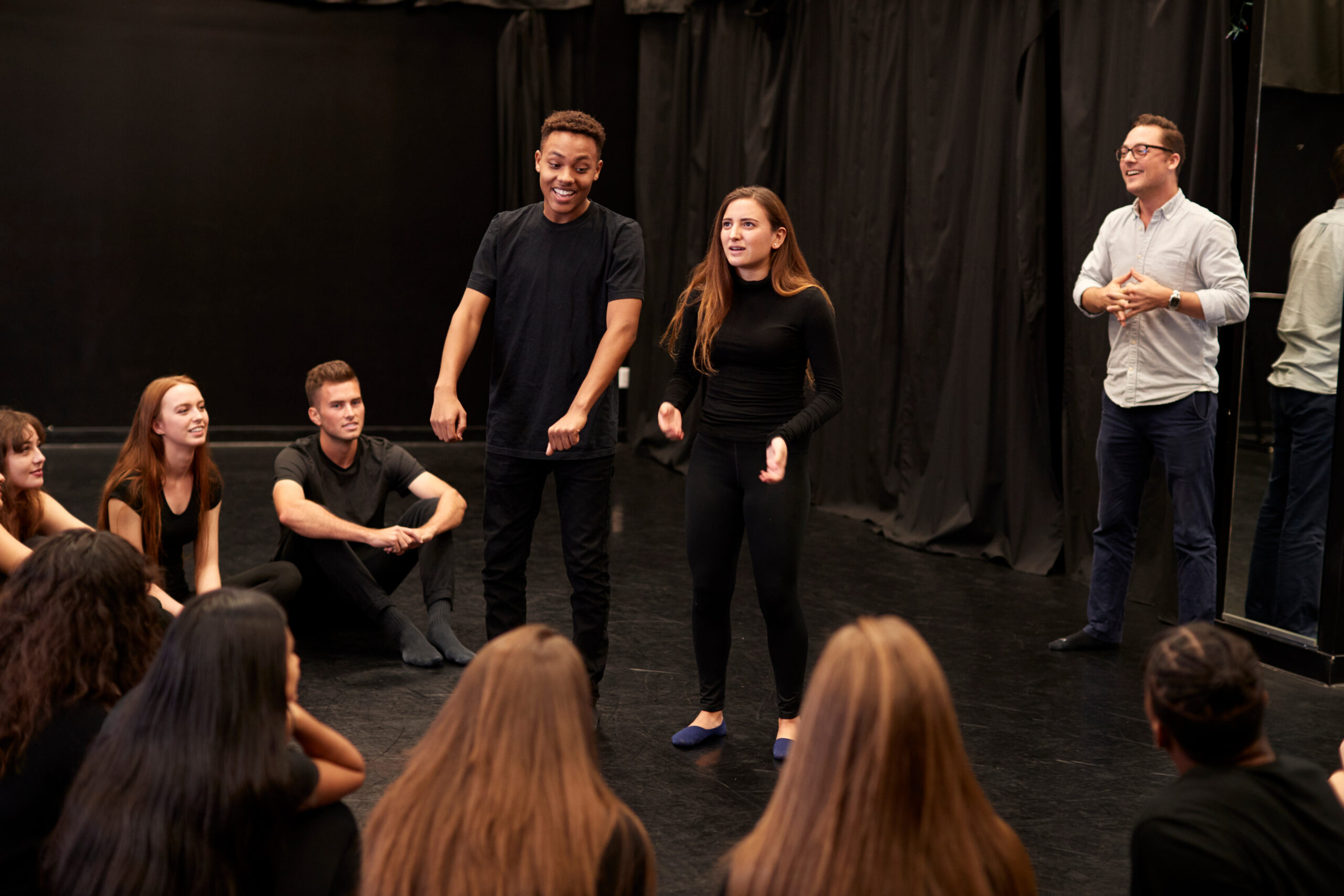When I look back at the early days of my career, I remember the thrill of being new to the theater world. There was an energy to it all—scrambling to get auditions, jumping into rehearsals, navigating small productions, and learning the ropes wherever I could. But what I remember most vividly are the people who offered their time, advice, and encouragement. A few kind words from someone more experienced, a recommendation, a thoughtful note after a performance—those moments made all the difference. They reminded me that I wasn’t alone. That’s what mentorship in theater is really about. It’s about lifting each other up, offering a hand, and making space for those still finding their voice.
Now that I’ve spent years in the industry—on both creative and producing sides—I see just how crucial mentorship is. Theater has always been a collaborative art form, but that collaboration has to extend beyond the stage. We need to be nurturing not just the next big playwright or performer, but the next producer, the next designer, the next stage manager. Everyone who touches a production has the potential to shape it. And it’s our job, as people who’ve been around long enough to have learned a few things, to help them grow.
The Value of Being Seen
One of the hardest things for anyone starting out in this field is feeling invisible. The competition is intense, the rejections are constant, and it’s easy to question whether there’s a place for you at the table. That’s where mentorship makes the biggest impact. When someone with experience takes the time to say, “You’ve got something here. Keep going,” it’s like oxygen. It’s not about inflating egos or offering empty praise. It’s about recognizing potential and showing that you see it, even if the person hasn’t fully realized it yet.
I’ve had the privilege of mentoring young people who are full of raw talent and big ideas. Sometimes they don’t yet have the vocabulary to describe what they want to create. Sometimes they’re unsure about the business side of things or overwhelmed by the uncertainty of a creative career. What they need isn’t just advice—they need someone who’s walked the path to say, “Yes, it’s hard. But it’s possible. And I’ll help you figure it out.”
Making Space for New Voices
Mentorship isn’t just about guidance—it’s about making space. It’s about recognizing when it’s time to step aside and let someone new take the lead. That can be hard, especially in an industry where opportunities are limited and risk is always part of the equation. But if we want the theater to evolve—to stay vibrant, inclusive, and relevant—we have to invest in fresh voices and new perspectives. That means inviting younger artists into the room, letting them pitch their ideas, giving them real responsibility, and allowing them to make mistakes.
When I mentor, I try to be as transparent as possible. I share the wins, but I also share the failures. I talk about the shows that didn’t work out, the collaborations that didn’t click, the lessons I had to learn the hard way. Because pretending everything has always gone smoothly doesn’t help anyone. What helps is honesty. What helps is showing that success is built on trial, error, persistence, and a lot of people who believed in you when it wasn’t easy to.
A Two-Way Street
Something I didn’t expect when I first started mentoring was how much I would learn in return. Every time I work with someone new, I’m reminded of what it’s like to be wide-eyed and hungry. That kind of energy is contagious. It pushes me to think differently, to stay curious, to keep challenging the way I work. Mentorship isn’t a one-way relationship. The exchange goes both ways. I might have more experience, but that doesn’t mean I have all the answers. The younger generation is often more in tune with the cultural moment, more fearless in their thinking, and more willing to take creative risks. That’s inspiring—and it keeps me sharp.
Some of the most rewarding professional relationships I’ve had have come from these mentorship connections. Over time, they evolve into real partnerships. I’ve seen mentees become colleagues, collaborators, and even mentors to others. It creates a ripple effect. When one person is empowered, they can go on to empower someone else. And that’s how the industry grows—not just in numbers, but in depth and diversity.
Keeping the Door Open
I believe that everyone who finds a place in theater has a responsibility to keep the door open behind them. This isn’t an industry that thrives on competition alone—it thrives on community. It’s built on late-night conversations, mutual respect, shared triumphs, and collective problem-solving. Mentorship is a big part of that. It’s one of the ways we pass on the spirit of the theater—the joy, the struggle, the commitment to telling stories that matter.
If you’re further along in your career and wondering whether you have anything to offer a younger artist, I’ll say this: you absolutely do. Even if you don’t have all the answers, your experience is valuable. Your encouragement could be the thing that helps someone take the next step. And if you’re just starting out, don’t be afraid to reach out. Ask questions. Seek advice. Most of us are here because someone did the same for us, and we’re happy to return the favor.
Mentorship isn’t about hierarchy—it’s about continuity. It’s about making sure that what we love about this art form continues to grow and thrive in the hands of those who come next. That’s not just good for the people we mentor. That’s good for theater. And it’s good for all of us who care deeply about keeping it alive.
